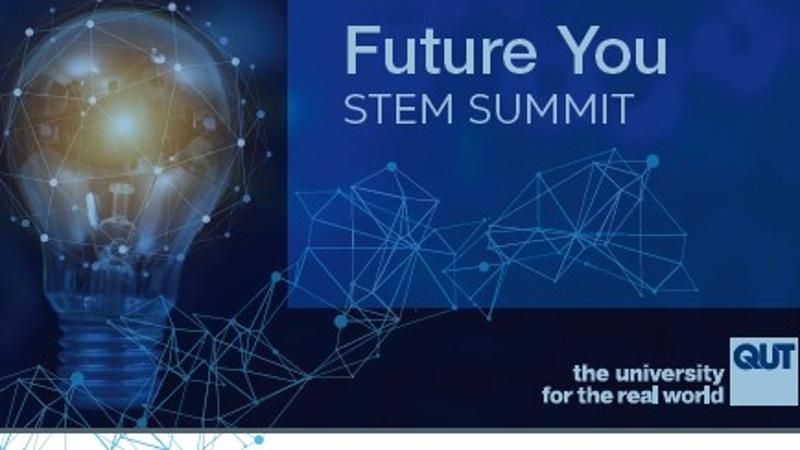First published 21 September 2021
Following the success of the STEM Camp for the last eight years, QUT is delivering the Future You STEM Summit for high-achieving Year 11 and 12 students in Brisbane and Townsville this September school holidays.
Over 120 students from Brisbane, the Sunshine Coast and the Gold Coast are set to arrive at Gardens Point campus from 28 September, with 21 students to take part in the first regional STEM Summit in Townsville at the same time.
The Brisbane four-day Summit (previously known as the QUT STEM Camp) is set to teach students the importance of a STEM mindset, helping to guide a new generation of leaders, entrepreneurs, and innovators to build the jobs of Australia’s future.
Featuring inspiring keynotes and interactive sessions, students will have access to real-world, industry-aligned learning to shape their mindsets and skillsets as they plan their own career pathways.
Summit coordinator Simone Young from QUT’s Young Accelerators Program said the university was delighted to be welcoming students back onto campus this year.
“The Future You STEM Summit is a four-day conference style program that will focus on leadership, entrepreneurship, and creativity.
“We'll have speakers including the Chief Scientist of Australia, the Chief Entrepreneur of Queensland, and from BMW, Gremlin Inc and Engineers Australia streaming into Brisbane to speak with students," she said.
The 2021 Brisbane program also includes a range of STEM Taster sessions, which will introduce students to disciplines across the Faculties of Engineering, Health and Science. Each student has the opportunity to choose six different sessions from the STEM Taster program of 14 immersive experiences, to design their own Summit program.
Program highlights include:
The hunt for new worlds and extraterrestrial life
Throughout history, we've wondered about the possible existence of distant worlds, and whether those worlds might harbour alien life. Within the last few decades, it has become possible to make progress on these timeless questions thanks to new groundbreaking research. Exoplanetary science is the study of planets around distant stars and represents one of the most rapidly growing (and exciting!) branches of astrophysics today. The scientists involved in this research contribute to a key understanding of the origin and evolution of the Solar System, allowing us to infer our past and speculate into the future of our planet. In this project, students will learn about the transit method of planetary discovery, light curve graphs, circumstellar habitable zones, astronomical spectroscopy and how each can be combined to identify Earth-like planets and potentially, extraterrestrial life. With access to imaging software on real data from telescopes students will model these principles and make calculations of exoplanet parameters.
Are we there yet?
The impact of COVID-19 is far from over, but the clearest indication of progress is vaccination rates. The Australian Government has set targets for full vaccination to trigger changes to current travel and lockdown policies. But when will we achieve these rates? Open-source data is available but making predictions requires both a coherent and accurate model and a means of “fitting” the model to the data. In this workshop, we will derive a logistic model describing the proportions, and a method of parameter estimation, or model fitting, based on the maximum likelihood principle. Results will be analysed using actual data available from Our World In Data, a publicly available open-source repository of hog-quality data for researchers and the public.
PlanDesignBuild A More Sustainable City
A simulated early stage multi-field consultancy, involving students as planners, designers (landscape, interior, architecture), civil engineers, and builders (construction managers and quantity surveyors) in the context of a hypothetical green bridge project.
COVID Contract Tracing Mystery
Serologic tests are blood tests that look for antibodies in your blood. Serology has been used historically to confirm infections with bacteria, fungi, and viruses that are difficult to detect by other methods. Using this method, students will identify past infection in the COVID contact tracing mystery.
QUT’s Young Accelerators Program is an initiative funded by the QUT Vice-Chancellor and delivers high school engagement activities including free on-campus workshops, events, and professional learning across STEM disciplines to help schools understand the importance of STEM skills and the broad range of future study and career opportunities STEM offers.
QUT will be back on the road again at the end of November to take the summit to teenagers in Bundaberg, Toowoomba, Gympie, Cairns, Mackay and Rockhampton.


